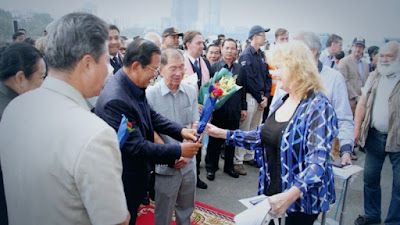A new study out of Britain shows that travelers could score better bargains if they go directly through the hotel rather than book with an online travel agent like Booking.com or Expedia.com.
That's according to Which?, a consumer rights group that found that when they contacted hotels directly they were able to score a better room rate compared to the prices listed on secondary travel websites or snag other incentives including free breakfasts or upgrades.
For the study, Which? contacted 10 hotels in Britain and asked if the hotels could offer a better deal than the ones posted by online travel agents (OTA) like Booking.com or Expedia.
In eight of the 10 cases, hotels offered discounts on rooms, food, spa treatments, or freebies like breakfast and parking. A hotel in Cornwall offered a discount of £20 (US$25.63), slashing the rate from £170 to £150.
"Customers shouldn't be duped into thinking they're getting the best price from a hotel booking site when more often than not, they can get a better deal by avoiding its commission and booking directly with the hotel," said Which? Travel editor Rory Boland in a press release.
That's according to Which?, a consumer rights group that found that when they contacted hotels directly they were able to score a better room rate compared to the prices listed on secondary travel websites or snag other incentives including free breakfasts or upgrades.
For the study, Which? contacted 10 hotels in Britain and asked if the hotels could offer a better deal than the ones posted by online travel agents (OTA) like Booking.com or Expedia.
In eight of the 10 cases, hotels offered discounts on rooms, food, spa treatments, or freebies like breakfast and parking. A hotel in Cornwall offered a discount of £20 (US$25.63), slashing the rate from £170 to £150.
"Customers shouldn't be duped into thinking they're getting the best price from a hotel booking site when more often than not, they can get a better deal by avoiding its commission and booking directly with the hotel," said Which? Travel editor Rory Boland in a press release.
"Hotel booking sites might be a good place to start your search, but you should always call or email the hotel for the best chance of getting the cheapest deal – even in cases where they can't offer a better price, there's a good chance they'll throw in a freebie or two."
Online travel agents typically charge commissions of between 15 percent to 25 percent on every booking, a fee that's often passed down to the consumer.
To get the best room rate, Which? editors recommend using an OTA as a starting point, and then calling the desired hotel directly. Quote the rate listed on Booking.com or Expedia.com, and ask if they can do better. A reasonable discount is between 15 percent to 25 percent.
Online travel agents typically charge commissions of between 15 percent to 25 percent on every booking, a fee that's often passed down to the consumer.
To get the best room rate, Which? editors recommend using an OTA as a starting point, and then calling the desired hotel directly. Quote the rate listed on Booking.com or Expedia.com, and ask if they can do better. A reasonable discount is between 15 percent to 25 percent.
Source - TheJakartaPost












